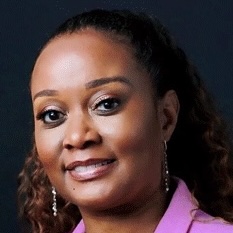 Maisha I. Handy has been named the twelfth president of McCormick Theological Seminary in Chicago. She will assume her new role on September 3, making her the institution’s first African American and second woman president.
Maisha I. Handy has been named the twelfth president of McCormick Theological Seminary in Chicago. She will assume her new role on September 3, making her the institution’s first African American and second woman president.
McCormick Theological Seminary enrolls roughly 160 graduate students, 43 percent of whom are Black.
Since 2000, Dr. Handy has served on the faculty of the Interdenominational Theological Center in Atlanta. A professor of religion and education, she most recently served as the institution’s interim president. During her tenure, she also had two stints as acting chief academic officer and vice president for academic and student affairs. Before joining the Interdenominational Theological Center, she spent one year as a teaching assistant to Anglican Archbishop Desmond Tutu of South Africa. Outside of higher education, Dr. Handy has spent over 10 years as the founding pastor for Rize Community Church.
Dr. Handy received her bachelor’s degree in criminology and criminal justice from historically Black Lincoln University of Missouri. She received her master of divinity degree from Emory University in Atlanta, where she was the institution’s first African American woman to receive a Ph.D. in religion.











